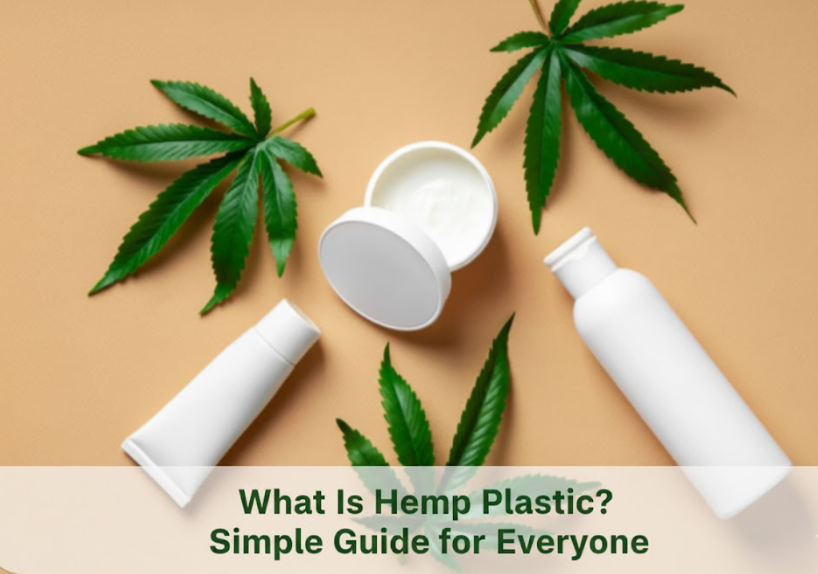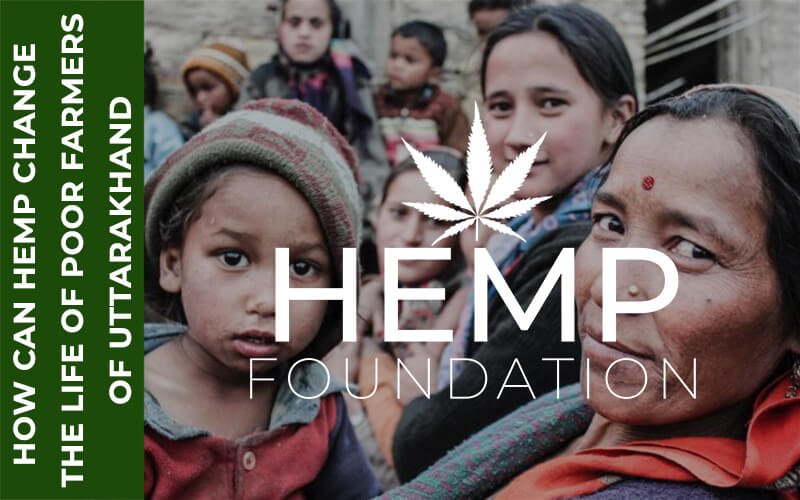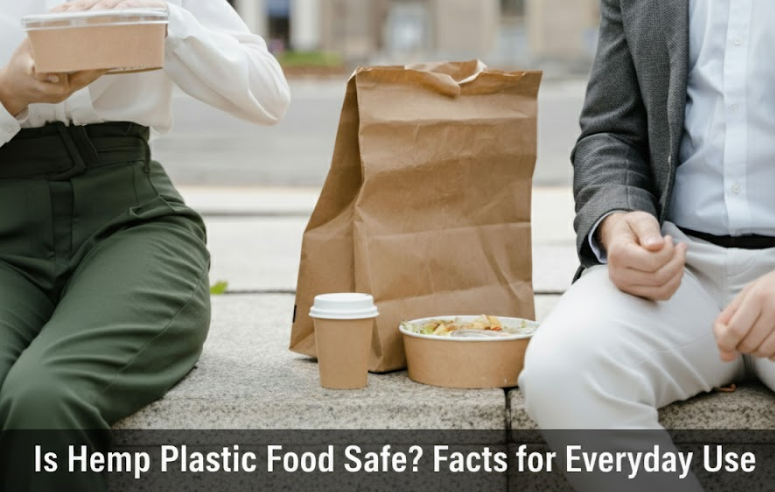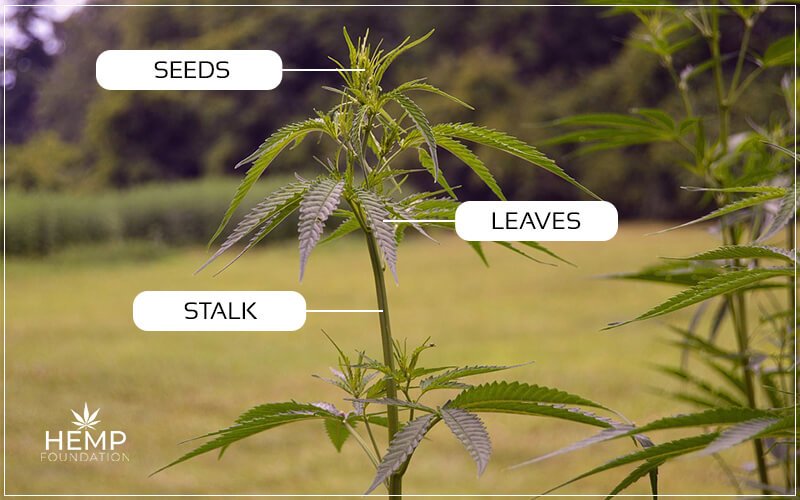What Is Hemp Plastic? Simple Guide for Everyone
When I first started talking about hemp plastic in India or abroad, most people were either skeptical or confused.
A few even dismissed me as a missionary of ‘yet another green fad’.
Some wanted to believe, but doubted that a plant could ever take on regular plastic, which is in almost everything we use.
But over the years, as the CEO of Hemp Foundation, I’ve watched conversations around hemp-based plastic go from curiosity to real, urgent interest. These days, the main question from businesses isn’t, “Does hemp plastic work?” It’s, “How soon can we get this into our products?”
So let’s break down what hemp plastic actually is, how it’s made, and why it’s getting so much attention. I want you to see this from the ground level up, just as I have.
What Is Hemp Plastic?
Put simply, it’s a type of plastic we make from the fibers that we get from the hemp plant, instead of oil. You might also hear people calling it hemp-based plastic or even “hemp bioplastic.”
Here’s why hemp plastic is a bit special.
The hemp stalk is packed with cellulose. This cellulose is the main ingredient in a lot of plastics, but hemp has up to 70% cellulose, which is way more than wood or cotton.
Because of this, we can turn hemp into a plastic material that can be molded and shaped for everything from bottles and bags to car parts and even phone cases.
But why should people care about hemp plastic? There are a few key reasons:
-
- Hemp as plastic can biodegrade in months, not centuries, if made right.
-
- Hemp grows quickly, uses little water, and doesn’t need chemicals.
-
- It doesn’t produce toxic by-products or leach harmful stuff into our food or air.
Another big deal with hemp plastic is that it looks and feels like regular plastic.
In fact, you’ve probably already used hemp plastic without realizing it, maybe in the packaging of something you bought online or even in parts of your car.
Source: Freepik
How Is Hemp Plastic Made?
It all starts in the field.
The first part of this chain is the farmer.
Farmers grow industrial hemp (it’s not the kind you smoke, and no, it doesn’t get you high). Industrial hemp is a tough, fast-growing crop that can thrive on poor soil and doesn’t need much water or any pesticides. Once the plants are mature, farmers will harvest them for their stalks.
The next step is decortication.
That’s just a technical word for what essentially means separating the tough outer fiber from the woody core inside the stalk. The fiber is where most of the cellulose is.
After decortication, the fibers are cleaned and processed to remove anything that isn’t cellulose.
Now comes the interesting part.
The pure hemp cellulose gets broken down and either mixed with other plant-based materials like cornstarch or PLA (polylactic acid), or sometimes even used directly if the tech allows. We heat up this mixture and process it using the same machines you’d see in a factory that makes regular plastic products.
What comes out is a resin or pellet that we can mold into whatever shape we need.
Biodegradable hemp plastic products like bags, containers, or even car interiors are made this way.
Now, knowing how it’s made, let’s talk about why all this effort is actually worth it.
Why Is Hemp Plastic Such a Big Deal?
First, let’s try to put the competition in perspective.
Bioplastics aren’t something new. People have tried corn, cassava, bamboo and whatnot to make bioplastics.
But hemp-based plastic brings a few things to the table that the others just can’t match:
-
- Hemp grows almost anywhere, even on land that’s too poor for food crops.
-
- It requires very little water and zero pesticides.
-
- It can actually restore damaged soil, which makes it healthier for future crops.
-
- The yields are incredibly high (we get more cellulose per acre than trees).
From my work with farmers in Uttarakhand, I’ve seen this first hand.
Hemp farming has turned previously abandoned fields into sources of income, especially for women.
On the environment side, biodegradable hemp plastic decomposes in three to six months under the right conditions.
So this isn’t just a “green” alternative.
It’s a real solution for pollution, for farmers’ livelihoods, and also for businesses that want to future-proof their products, as I’ll explain next.
Where the Hemp Plastics Market Is Moving
If you think hemp plastic is just a nice idea or something for a distant future, let me show you what’s happening right now.
Packaging is where you’ll see the biggest changes first.
The global hemp-based packaging market was valued at over $237 million in 2024 and is growing at a healthy 12% every year. Companies, especially in Europe and North America, are exporting hemp-based plastic in bulk from manufacturers in India, to make:
-
- Food containers
-
- Shopping bags
-
- Flexible wrapping films
-
- Bottle caps and lids
Automotive is another surprising area.
Top carmakers such as BMW, Mercedes, Audi have used hemp composites in their vehicles for years, especially in interior panels. That’s because these materials are up to 10% lighter, which improves fuel efficiency and lowers carbon emissions. Some reports show using hemp can cut a vehicle’s CO₂ output by around 7%.
Consumer goods are also catching up fast. We’re seeing biodegradable hemp plastic in:
-
- Sunglasses frames
-
- Phone cases
-
- Reusable kitchenware and utensils
-
- Toys
You’ll also spot hemp plastic in electronics, especially as companies look for safe, heat-resistant, and eco-friendly casings for devices.
So with all this momentum, what’s standing in the way of an even bigger breakthrough? That brings us to the challenges and the work we’re doing to solve them.

Source: Freepik
The Big Questions: What’s Next for Hemp Plastic (and What We’re Doing at Hemp Foundation)
It’s true, there’s a lot to be optimistic about. But real progress means being honest about what’s hard.
Here are three big questions that I, and many others in this field, am still working to answer:
1. How do we make sure farmers are at the heart of this change?
It’s easy for a new industry to promise benefits and then leave rural communities behind. At Hemp Foundation, we’ve focused on helping farmers (especially women) become direct participants in the hemp value chain. This means selling their raw crop as well as learning processing skills, and then setting up small cooperatives.
2. How do we scale up hemp plastics to compete on price and volume?
Right now, hemp-based plastic costs more than regular plastic, mostly because the technology and the supply chains are new. At our Innovation Lab, and with partners like Ukhi, we’re working on better, cheaper ways to process hemp, extract cellulose, and develop blends that perform as well as or better than oil-based plastics.
3. How do we build business models that can work long-term?
Our goal is not to ‘swap out one material for another’. We need entire ecosystems that link farmers, processors, brands, and even local governments.
This is why we’re piloting farmer-led cooperatives. We also push for supportive policy and work closely with businesses who want to move fast, but responsibly.
At Hemp Foundation, our approach is always: if it doesn’t lift up everyone involved, it’s not good enough.
So, what do people ask me most about hemp plastic? I’ll try to answer the questions I hear every week.
What People Ask Me Most
What is hemp plastic, in one sentence?
It’s a durable, moldable plastic made from the cellulose of the hemp plant, instead of oil.
Is hemp plastic safe for everyday use?
Yes, it’s non-toxic, food-safe, and doesn’t leach harmful chemicals (unlike some regular plastics).
How long does it take for hemp plastic to break down?
Most biodegradable hemp plastic products decompose in three to six months under the right conditions, which is a huge improvement over traditional plastics.
Is hemp plastic more expensive than regular plastic?
Today, yes, a bit, but the gap is closing as the technology improves and production scales up.
Does hemp plastic comply with global packaging laws?
Many products already do, especially in the EU and North America, but always check local guidelines and certifications for specifics.
If you have more questions, I encourage you to reach out as this is a fast-changing field, and honest questions will drive real progress.
Vishal Vivek
Vishal Vivek is the Founder and CEO of Ukhi, a pioneering bio-materials company dedicated to ending plastic pollution by converting agricultural waste into high-performance compostable polymers. With a background in sustainable entrepreneurship and over a decade of technology experience, he leads Ukhi’s vision to create scalable, planet-positive material solutions. Previously, Vishal founded the Hemp Foundation, where he empowered more than 1,000 farmers and advanced sustainable livelihood initiatives. His work has been recognized through awards such as the HDFC Parivartan Grant and featured in leading publications like Forbes and Entrepreneur. Times Group recognized him as a legendary entrepreneur and published his biography in “I Did IT- Vol 2” alongside social pioneers like Bindeshwar Pathak (Sulabh International) and Anshu Gupta (Goonj). Vishal has authored more than 200 articles on sustainability and hemp, reflecting his deep expertise and advocacy for regenerative solutions. His commitment to grassroots impact led him to live in the remote mountains of Uttarakhand, where he immersed himself in the lives of marginal farmers, understanding their challenges and co-creating economic opportunities through hemp-based initiatives. A deeply passionate innovator, Vishal often draws inspiration from seemingly impossible achievements: “If Elon Musk can make rockets reusable, or Dashrath Manjhi can carve a path through a mountain with rudimentary tools, why can’t we eliminate the demon of single-use plastic while uplifting struggling farmers? We will make it happen—whatever it takes.” Ukhi is proud to be supported by premier institutions including IIT Guwahati, NSRCEL-IIM Bangalore, Indian School of Business (Hyderabad), Indian Council of Agricultural Research (ICAR Pusa), and the Indian Institute of Packaging. Vishal is committed to demonstrating that business can be a powerful catalyst for global environmental and social good. Connect with Vishal Vivek
Related Posts
How Can Hemp Change The Life of Poor Farmers of Uttarakhand
Before we answer how hemp can improve the lives of poor farmers of Uttarakhand, let’s cover some b
Is Hemp Plastic Food Safe? Facts for Everyday Use
Every time a new packaging material enters the market, the first question isn’t about how green it
The Usages Of Every Part Of Hemp Plant
Nature never ceases to amaze us and hemp is one part of nature that just cannot be avoided. Hemp is





